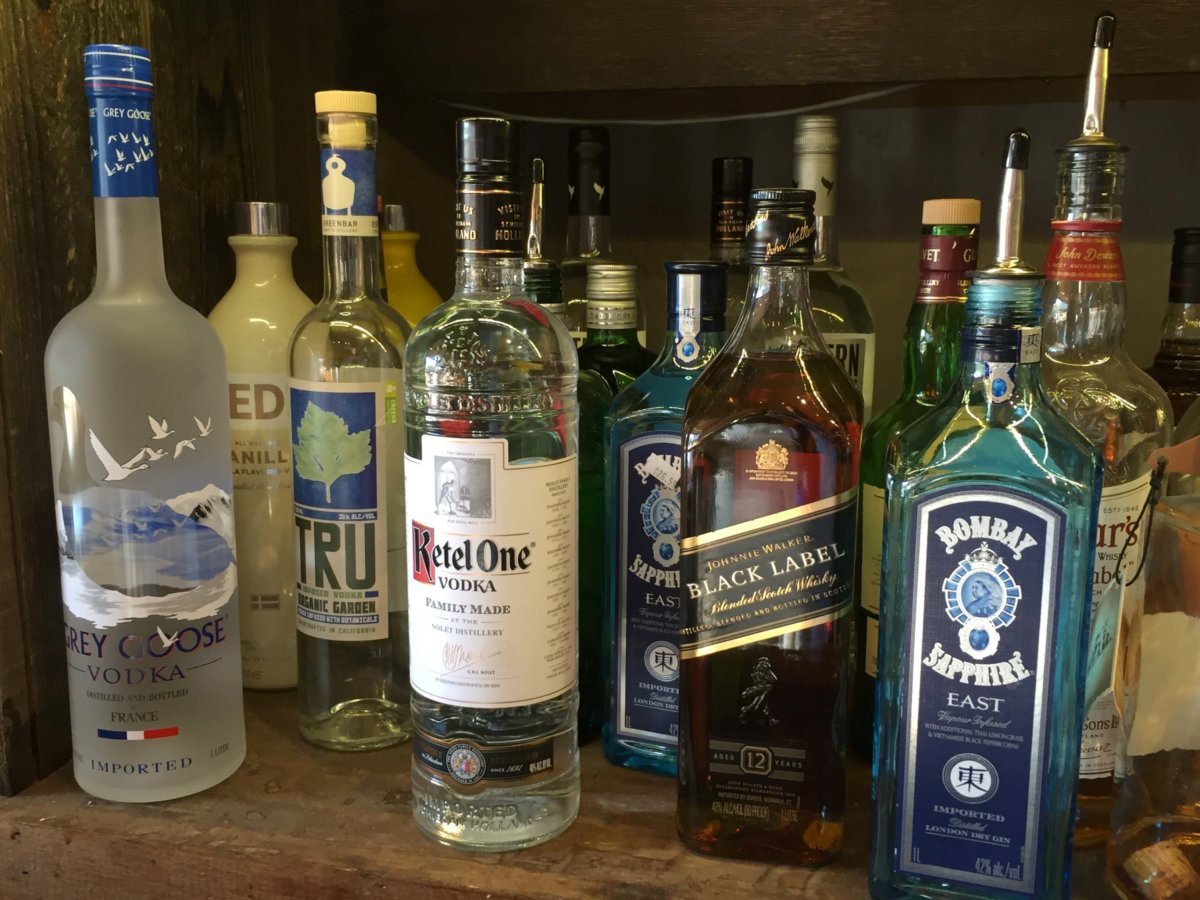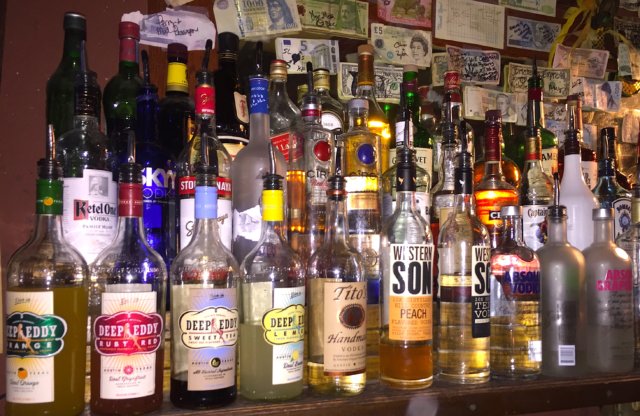
The difference between “shall” and “may” in one portion of Oklahoma’s new alcohol laws has left liquor stores, a locally owned wholesaler and some legislators pushing to break up what they call a duopoly in the liquor distribution market.
Thanks to a few lines of amendment within voter-approved SQ 792, the nation’s top brands of liquor now distribute their products in Oklahoma exclusively through either Central Liquor Company or Jarboe Sales Co., two longtime Oklahoma businesses that struck deals with national distributors: Republic National Distributing Company (RNDC) and Southern Glazer’s Wine and Spirits, respectively.
The change dramatically hurt the business of Tulsa-based Boardwalk Distribution and other now-defunct wholesalers, and the Retail Liquor Association of Oklahoma says the effect on liquor stores has been equally problematic.
“These people who have exclusive rights to these spirits and these wines have continued to slowly decrease service and slowly increase price,” said RLAO President Bryan Kerr, owner of Moore Liquor. “The sharpest part of that knife pokes at the rural areas where they have really seen severely reduced service and availability of product since the passage of the law.”
To address similar concerns from other liquor stores and Boardwalk Distribution, Rep. Chris Kannady (R-OKC) dropped language into SB 608 on April 2 that would define “top brand” as one of the 25 most-sold spirits and wines over a 12-month period. The bill would require manufacturers to sell those top brands to any wholesaler wanting to purchase and distribute them.
Kannady joined Kerr in saying reduced wholesaler competition has allowed RNDC and Southern Glazer to reduce delivery frequencies and quantities while increasing bottle-handling fees.
“I have not had a single liquor store say they are against it,” Kannady said of his language in SB 608. “Restaurants have the same problem. You’ll have restaurants in downtown Oklahoma City who run out of product because they’re not getting deliveries. So if that’s happening in Oklahoma City, imagine what’s happening in rural Oklahoma.”
Follow @NonDocMedia on:
‘So anti-business it makes your head spin’
John Maisch, an attorney and consultant for RNDC and Southern Glazer, said neither of his clients were approached prior to Kannady unveiling his proposal, which Maisch says runs afoul of the constitutional language codified by voters in SQ 792.
“I’m sure we’ll look back in a couple months on SB 608 and say, ‘It’s unconstitutional,'” Maisch said. “Whether the Legislature figures that out before they vote on SB 608 or whether it takes a lawsuit and a district judge to tell us that, this top-25 brand language will get invalidated. There’s no question about it. I think Chris knows that. He’s a lawyer.”
Kannady said the Oklahoma Constitution does not prohibit his proposal because the topic is already further defined in statute.
“Also, there is an argument to be made that the current statute already violates the Oklahoma Constitution, and Mr. Maisch knows that,” said Kannady, referencing multiple sections of the constitution addressing “monopolies.”
A former assistant attorney general who previously served as general counsel for Oklahoma’s Alcoholic Beverage Laws Enforcement Commission, Maisch said manufacturers have valid reasons for wanting to choose who distributes their products. He said using a single wholesaler allows quality control and communication requirements about inventory management to be included in a signed distribution contract.
“That’s not the case when you use all 11 wholesalers because there’s not a contract in place,” Maisch said. “So you’d be forcing a supplier who makes some of the top brands in the country to have to use every wholesaler whether that wholesaler is equipped and prepared to deliver that produce safely and professionally. It’s so anti-business it makes your head spin.”
But Bryan Hendershot, owner of Boardwalk Distribution, said Oklahoma’s previous system incentivized competition among wholesalers that benefited restaurants, liquor stores and ultimately consumers.
“The day the law changed, we lost the top 100 spirit brands immediately,” Hendershot said. “[Oklahoma] took the distribution model to the stone ages.”
Maisch disagreed, noting that states could require manufacturers to pick a single wholesaler.
“At least in our state, a supplier can continue to use all the wholesalers if they choose to do so,” he said. “Now the fact they haven’t chosen to do so, I don’t know what to tell Brian Hendershot.”
Hendershot: ‘You have to donate to politicians’

What Brian Hendershot tells members of the Oklahoma Legislature is that Oklahomans voted for SQ 792 because it eliminated low-point beer and authorized the sale of cold beer and wine in liquor stores.
“There was no store out there saying, ‘Change the distribution model so I can only get brands from one company whether they do a good job or not,'” he said.
How Hendershot tells that to lawmakers received criticism in an April 10 post from the McCarville Report that had to be corrected for inaccurately referencing Hendershot as a “lobbyist principal.” The post detailed campaign contributions Hendershot made during this year’s legislative session, an action that would have been illegal had he done so as a lobbyist or through his company.
“It’s a red-herring to the overarching thing at hand,” Kannady said of criticism about Hendershot’s campaign contributions. “People give political contributions all the time, and he is no different than any other people who give political contributions, including those on the other side of this issue.”
Speaking on the condition of anonymity, other House members said the way they received checks from Hendershot induced heartburn.
“They handed out $1,500 checks like it was candy,” said one lawmaker who attended a mid-March event at the OUHSC Faculty House down the road from the Capitol. “I’d never seen anything like it during session.”
Another lawmaker said he had never met Hendershot prior to an event where checks were handed out just before the start of session.
“It certainly looks like they’re trying to buy a vote, honestly,” the House member said. “Thinking backwards, I see this legislation and I ask who is lobbying for it. I get the name of the lobbyist, the lobbyist is representing those people, and it just so happens that they were the ones handing out a bunch of checks before session starts. So it just looks like you’re manipulating the process.”
Hendershot said he has been making political contributions for years and noted his other business interests, including bagel shops, commercial real estate and a trampoline park.
“You have to donate to politicians and legislators because you have to make sure your voice is going to be heard and that they will pay attention,” Hendershot said. “There’s going to be bills for the next 10 years on liquor stuff. I want legislators to know who I am and that this matters to me.”
Hendershot said he was not contacted by the McCarville Report prior to its story publishing.
“That was a low-blow, and obviously he had to retract it,” Hendershot said. “It’s a good technique. It did its damage for a minute until people understood what was wrong.”
Kannady said Hendershot’s campaign donations should not distract people from the issue at hand.
“Any time you have a monopoly or duopoly, the result is you don’t have a free market,” Kannady said. “In this case, you get less customer service, you get less product, and the result has been catastrophic just in a few short months, and it affects rural Oklahoma more than anything else.”
Poteau liquor store owner: ‘Make it a level playing field’
Since 2006, Pat Gillham has operated Northside Liquor in Poteau, about 30 minutes from Fort Smith, Arkansas. She said the Oct. 1, 2018, law change affected wine and spirit distribution to her store almost immediately.
“I’m at a big disadvantage right now because it’s not a level playing field. It’s like a small monopoly,” Gillham said. “I was getting a delivery twice a week from Southern Glazer’s, and now I get it once a week.”
Beyond distribution frequency, Gillham said she has had to raise prices because the two wholesalers who distribute top brands are charging more for “bottle handling,” a fee imposed per-bottle when a store wants to buy less than a full case.
“Southern Glazer’s this month is charging $1.20 per bottle,” she said, adding that the same fee was $0.56 per bottle in 2017. “I’m a border-line state, so I’m having to compete with Fort Smith. Fort Smith can sell their liquor cheaper than I can buy it.”
Sen. Stephanie Bice (R-OKC) has spearheaded many legislative negotiations over alcohol modernization in the past four years, and she urged caution before changing major parts of the new law.
“I worry when we try to make significant changes to a new distribution process that’s only been in effect for six months,” Bice said. “In the previous world, the manufacturer didn’t get a choice. They were forced to sell to everyone. So if I’m a manufacturer, and I think Wholesaler A is doing an incredible job of promoting my product — delivering my product — selling my product, why should I be forced to sell to everyone?”
In contrast, Gillham said hers is the largest liquor store south of Tulsa and north of Durant, but she said she and smaller eastern Oklahoma liquor stores “just don’t have representation out here anymore.”
“I’ve been trying to get a case of Caymus (Vineyards) for over a month. It’s an allocated item. It retails for about $97 per bottle, and I can sell it all day long,” Gillham said. “Before, I could call somebody, and it would have been on the truck, if not that week then the next week.”
Gillham said the distribution issues have exacerbated new struggles for liquor stores who have lost major business to grocers like Walmart, which can now sell full-strength beer and wine.
Gillham said single-source distribution contracts leave “no backup plan for the small guy,” and she said she has spoken with Poteau’s new state Rep. Lundy Kiger (R-Poteau) four times about the issue.
“I just asked him to make it a level playing field because it is a monopoly. It’s bad enough that we have to compete with Walmart, but we don’t have representation,” Gillham said.
Kerr, the Retail Liquor Association president, agreed.
“Due to a decrease in competition, particularly with the top brands, we’ve seen prices go up, we’ve seen selection go down, and we’ve seen the consumer affected in both those ways,” Kerr said. “[Liquor stores] end up paying more for it, and the consumer ends up paying more for it.”
Kerr expressed concern for business owners like himself who speak up on the topic.
“If you’re not in somebody’s good graces with these wholesalers or you’re not a big account, then you can be completely ignored,” he said. “They can pick and choose who they want to favor in the market, and some guy who is maybe a little bit of a loudmouth will have a harder time getting what his customers want.”
But Maisch said government should not require manufacturers to sell products to anyone.
“Why would a supplier just want to use one wholesaler? Because the product is their lifeblood. If the product fails, they fail,” Maisch said. “Why should a supplier be forced to use a wholesaler they don’t want to use?”
Gillham said more options in the distribution market would yield better customer service and lower prices for top-selling spirits like Crown Royal, Kentucky Deluxe and Heaven Hill.
“A monopoly is a monopoly, and it should be broken up,” she said. “Let everybody carry the top 25 brands.”
(Clarification: This story was updated at 8:20 a.m. Monday, April 15, to clarify a statement from John Maisch about other states’ liquor distribution rules.)





















